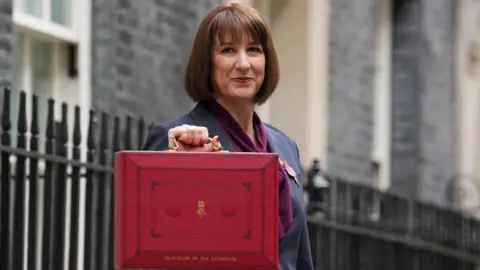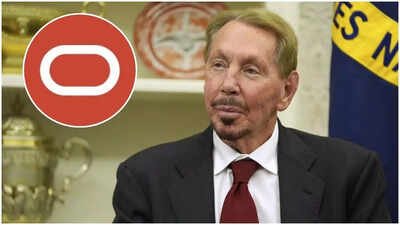Business
OpenAI copyright lawsuit should be heard in the U.S. instead of Ontario, company lawyers say
Artificial intelligence company OpenAI is based in San Francisco and registered under the laws of Delaware.Dado Ruvic/Reuters
A copyright lawsuit filed against OpenAI in Ontario by news media organizations should be heard in the United States instead because the company does not conduct business in the province, lawyers for the artificial-intelligence giant argued at a court hearing Wednesday.
Canada’s major news organizations, including The Globe and Mail and the Canadian Broadcasting Corporation, sued OpenAI last November for allegedly violating copyright law by scraping proprietary news content without consent or payment to train its models, such as those that power ChatGPT.
Lawyers for OpenAI said that the Ontario court does not have jurisdiction because none of the corporate entities named as defendants in the suit conduct business in the province or have offices there. OpenAI’s model training and web-crawling activities occur elsewhere, the lawyers said at the Superior Court of Justice hearing.
“The conduct that is barely alleged in the statement of claim overwhelmingly occurs outside of Canada,” said Marc Crandall, a partner at Gowling WLG who represents OpenAI. “Conduct outside of Canada is not within the court’s jurisdiction.”
OpenAI and Meta adjust AI chatbots to better respond to teens in distress
OpenAI is based in San Francisco and registered under the laws of Delaware.
Plaintiffs in the lawsuit also include Postmedia Network Inc., Toronto Star Newspapers Ltd., Metroland Media Group, The Canadian Press and Radio-Canada.
Sana Halwani, a partner at Lenczner Slaght LLP who represents the news companies, said in court that OpenAI’s arguments that the court has no jurisdiction in the matter are “impossible to accept.”
Her colleague, Monique Jilesen, laid out eight ways OpenAI operates in Ontario, including having customers for ChatGPT in the province. “They’ve been very focused on where a server is, and they’re not focused on the big picture of how this business is actually conducted,” she said.
In a written document, the lawyers said OpenAI’s web crawlers have accessed the news companies’ websites, and allegedly broke the terms of service by scraping data for commercial purposes, through servers in Ontario. The company also has a partnership with Microsoft Corp. to sell its products and services in Canada, and its models are “reproduced and hosted” in a Microsoft data centre in Toronto, according to the lawyers.
On that point, OpenAI said that its finished models do not contain copies of any training data.
Judge Jessica Kimmel said she will issue a decision soon.
Lawyers for the news companies wrote in a court document that kicking the matter to the U.S. would amount to “Canada giving up jurisdiction over a large part of its digital economy – a sobering prospect, particularly in the context of news media and its importance to Canadian sovereignty.”
OpenAI called those arguments “hyperbolic” and said “attempts to politicize the motion through appeals to sentiment should be rejected as distractions from the legal issues.”
Bell fighting $400-million lawsuit from film companies alleging it broke copyright law
The lawsuit is one of many filed against AI companies in North America by authors, artists and publishers who argue that training on their intellectual property violates copyright law. Some of the suits also contend AI chatbots can regurgitate copyrighted material verbatim.
AI companies have generally argued that building their models on information culled from the internet without permission is allowed under copyright laws. Canada has a provision called fair dealing, which permits using copyrighted material for research and educational purposes.
But how this provision applies to commercial AI models has proven controversial. The Copyright Act in Canada was conceived well before generative AI took off, and while the federal government completed a consultation last year about updating the legislation, it remains unchanged.
Evan Solomon, the federal minister of AI and digital innovation, previously told The Globe and Mail the government is watching how court cases play out so that legislation is “aligned with market signals to how content creators are compensated.”
Toronto-based AI company Cohere Inc. is facing a lawsuit in the U.S. from news companies, including the Toronto Star, over similar issues. Cohere has denied the allegations and asked the court to dismiss the lawsuit.
Business
Inside the Secretive World of America’s AI Data Centers

The explosion of AI across every industry has seen hundreds of water- and power-hungry server farms sprout up across the US.
Already, one-third of the world’s internet traffic flows through data centers in just one US state: Virginia.
However, until now, there has been no official record of the number of data centers in America, who owns them, or how much electricity they consume.
In an exclusive deep dive into the industry, Business Insider reporters cracked the code and, for the first time, revealed the true cost of the data warehouses feeding our growing appetite for cloud computing and AI.
We traveled to Virginia to meet people living in the shadow of 80-foot-high boxes that emit a constant drone, and to the drought-ridden state of Arizona, where some data centers are using as much as a million gallons of water a day to help cool their computer servers.
Business Insider also discovered that the power needs of data centers have forced some states to withdraw from their carbon emissions targets. Power companies are even looking to extend the life of coal and gas plants to help meet the unprecedented demand.
Click here to read our complete series of features on the US data center industry.
Take a look at Business Insider’s methodology for a full breakdown of how we conducted our research and compiled our map.
Business
When is the Budget and what might be in it?

Jennifer Clarke & Tom EspinerBBC News
 Reuters
ReutersThe Chancellor Rachel Reeves will set out plans for the economy when she delivers the Budget on 26 November.
There have been warnings that she will have to put up taxes or cut spending if she wants to stick to her own rules on government borrowing.
Before the 2024 general election, Labour promised not to increase income tax, National Insurance or VAT for working people.
What is the Budget?
In her Budget statement, the chancellor of the exchequer will outline the government’s plans for raising or lowering taxes.
It will also include big decisions about spending on health, schools, police and other public services.
The statement is made to MPs in the House of Commons.
Alongside the Budget, additional details about the measures and costs will be published by the Treasury, the government’s economic and finance ministry.
The independent Office for Budget Responsibility (OBR), which monitors government spending, will also publish an assessment of the health of the UK economy and a forecast of what it thinks will happen in the future.
What time is the Budget and what happens afterwards?
The Budget speech usually starts at about 12:30 UK time – after Prime Minister’s Questions – and lasts about an hour.
It will be broadcast live on the BBC iPlayer and on the BBC News website.
The Leader of the Opposition, Conservative MP Kemi Badenoch, will respond to the speech in the House of Commons.
MPs debate the measures for four days, before voting on them.
If approved by MPs, tax changes can come into effect immediately. However, the government must pass a finance bill to make them permanent.
What might be in the Budget?
There has been lots of speculation that Reeves might raise taxes in the Budget.
This is because she is expected to need to raise extra money to meet her self-imposed rules for government finances, called fiscal rules.
Reeves has two main rules, which she has said are “non-negotiable”:
- Not to borrow to fund day-to-day public spending by the end of this parliament
- To get government debt falling as a share of national income by the end of this parliament
However, in its last estimate in March, the OBR said the chancellor only had £10bn headroom to meet these rules, which it called a “very small margin”.
Since then the government has U-turned on planned benefit cuts that had aimed to save billions, while the cost of government borrowing has also increased.
Tax thresholds
There has been speculation that if the government wants to raise more tax without increasing income tax, VAT or National Insurance for working people, it could extend the current freeze on income tax thresholds, which is due to end in 2028.
Freezing the thresholds means that, over time as salaries rise, more people reach an income level at which they start paying tax or qualify for higher rates. This is often referred to as a “stealth tax”.
Property taxes
There have also been reports that property taxes will be reformed.
This could include replacing stamp duty – a tax buyers pay on properties above a certain value in England and Northern Ireland – with a property tax.
Landlords could have to pay more taxes, and council tax could be replaced.
One report suggested the government was considering taxing the money people make when they sell their main home in certain circumstances – this would mean changing the capital gains tax rules.
Isa reform
In July, the chancellor ruled out any immediate reform to cash Isas (Individual Savings Accounts). There had been speculation that she wanted to reduce the annual allowance to push people into investing in shares instead, to help boost economic growth.
It is possible that reform could still happen, but other measures to encourage people towards personal investment are considered more likely.
Pension changes
There is often speculation about possible changes to pension rules ahead of the Budget, such as the tax relief available to savers and the level of the tax-free lump sum which can be withdrawn.
However, previous chancellors who have been tempted to change to the higher rate tax relief on pension contributions have not done so. Cutting the relief would save the Treasury money, but may make pension savings less attractive.
Other taxes
The TUC, the umbrella group for trade unions in the UK, has called for higher taxes on online gaming companies and on banks’ profits.
How is the UK economy doing?
The Labour government has repeatedly said that boosting the economy is a key priority.
A growing economy usually means people spend more, extra jobs are created, more tax is paid and workers get better pay rises.
The latest figures show that growth in the UK economy has slowed in recent months. The economy was flat in July, after growing by 0.4% in June.
Looking at the longer term trend, the economy grew by 0.2% in the three months to July, down from the 0.3% growth seen in the three months to June, and from the 0.6% growth seen between March and May.
Meanwhile prices in the shops are still rising faster than wanted.
Inflation – the rate at which prices rise – was 3.8% in the year to July, which is above the Bank of England’s 2% target.
Despite this, in August the Bank cut its key interest rate to 4%, taking the cost of borrowing to the lowest level for more than two years.
The Bank moves interest rates to try to keep inflation on target, and cuts are less likely when price rises are above 2%.
However, the Bank cut rates because of concerns that the jobs market is weakening, with data showing job vacancies are continuing to fall and wage growth is slowing.
Lower interest rates can make loans, credit cards and some mortgages cheaper, but can also mean worse returns for savers.
Business
AI cloud surge: Oracle’s Nvidia moment? What to know about Larry Ellison co-founded firm’s sudden rise

On Wednesday, Oracle stunned Wall Street when its shares surged 36% in a single day, the company’s biggest one-day gain since 1992. The rise followed its announcement of a series of multibillion-dollar deals in artificial intelligence (AI) cloud infrastructure, including a landmark agreement with OpenAI. The rally was so dramatic that Oracle co-founder Larry Ellison briefly overtook Elon Musk as the world’s richest person before market corrections set in.The $300 billion OpenAI deal and moreAt the centre of the surge is Oracle’s $300 billion, five-year agreement with OpenAI, one of the largest cloud computing contracts ever signed. The company will provide computing resources and infrastructure to power OpenAI’s advanced models. Oracle has also struck deals with Nvidia, SoftBank, Meta, and xAI, signalling its transformation into a core provider of AI infrastructure.Backlog signals long-term growthCEO Safra Catz revealed that Oracle’s backlog of finalised contracts has reached $455 billion, four times higher than last year, and is expected to cross $500 billion soon. This backlog offers investors confidence in sustained long-term revenue, even as quarterly results sometimes fall short of projections, as reported by ET.Competing with cloud giantsOracle’s position in AI cloud computing now puts it in direct competition with Amazon Web Services and Microsoft Azure. The company expects revenue from its cloud infrastructure business to rise 77% to $18 billion this year, and reach $144 billion within four years, according to news agency AP.The billionaire shuffleThe surge in Oracle’s stock briefly added around $100 billion to Ellison’s wealth, pushing him past Elon Musk in Bloomberg’s billionaire rankings. Musk, whose fortune is closely tied to Tesla, regained the top spot later in the day. But as AP noted, the episode highlighted how AI-driven optimism is reshaping wealth dynamics among tech leaders.Why it matters for AIOracle’s resurgence positions it as a critical enabler of global AI adoption. By providing high-performance, reliable cloud infrastructure, the company is not just fuelling chatbot development but also supporting applications in robotics, pharmaceuticals, finance, and automation. Or as Ellison himself summed it up during an earnings call: “AI changes everything.”
-

 Business2 weeks ago
Business2 weeks agoThe Guardian view on Trump and the Fed: independence is no substitute for accountability | Editorial
-
Tools & Platforms1 month ago
Building Trust in Military AI Starts with Opening the Black Box – War on the Rocks
-

 Ethics & Policy2 months ago
Ethics & Policy2 months agoSDAIA Supports Saudi Arabia’s Leadership in Shaping Global AI Ethics, Policy, and Research – وكالة الأنباء السعودية
-

 Events & Conferences4 months ago
Events & Conferences4 months agoJourney to 1000 models: Scaling Instagram’s recommendation system
-

 Jobs & Careers2 months ago
Jobs & Careers2 months agoMumbai-based Perplexity Alternative Has 60k+ Users Without Funding
-

 Podcasts & Talks2 months ago
Podcasts & Talks2 months agoHappy 4th of July! 🎆 Made with Veo 3 in Gemini
-

 Education2 months ago
Education2 months agoVEX Robotics launches AI-powered classroom robotics system
-

 Education2 months ago
Education2 months agoMacron says UK and France have duty to tackle illegal migration ‘with humanity, solidarity and firmness’ – UK politics live | Politics
-

 Funding & Business2 months ago
Funding & Business2 months agoKayak and Expedia race to build AI travel agents that turn social posts into itineraries
-

 Podcasts & Talks2 months ago
Podcasts & Talks2 months agoOpenAI 🤝 @teamganassi
















